District office example: How co-creation can improve collaboration within the authority
Behind the yellow grid façade of the Hamburg-Nord district office, Susanne Rengel is working on a cultural change with the Cross Innovation Hub.
Behind the yellow grid façade of the Hamburg-Nord district office, Susanne Rengel is working on a cultural change with the Cross Innovation Hub.
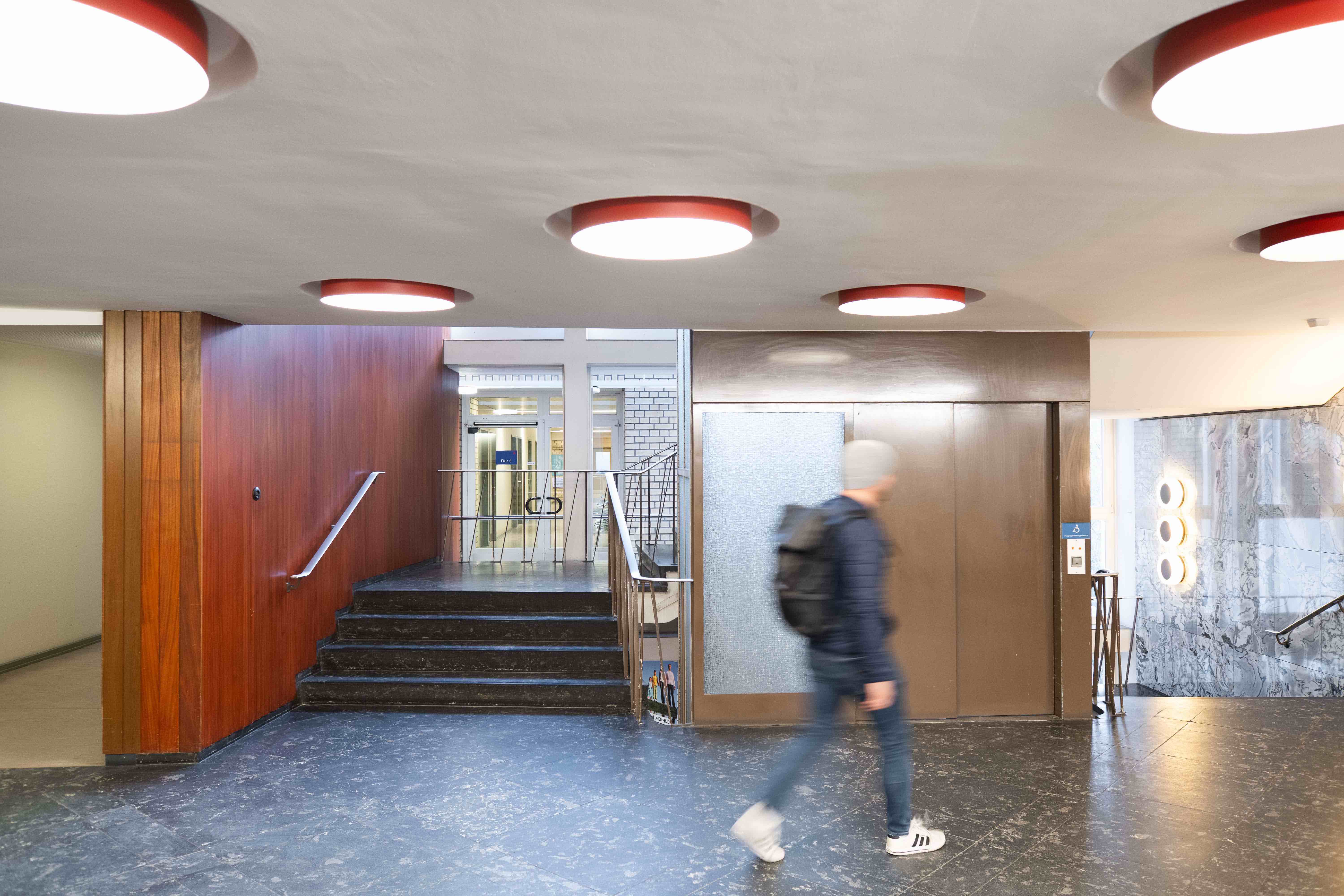
Barrier cords hang in front of the paternoster in the Hamburg-Nord district office. The man at reception: "It's always switched off from midday to save energy." So we continue on foot, quiet corridors branch off from the stairwell, behind closed doors: Offices for two. In 1954, architect Paul Seitz had not yet thought of rooms for meetings or spontaneous dialogue. The district office is expected to move into a new building in 2027 - the most visible sign of a change from within that is slowly taking shape. Susanne Rengel knows that even small steps and new practices can make a big difference. She is a "transformation facilitator" at the district office - and her office door is usually open.
The "open door culture" is also one of many ideas from the development project that Susanne Rengel designed and managed with the Chair of Administrative Sociology at the University of Potsdam and the Cross Innovation Hub of Hamburg Kreativ Gesellschaft. She says: "An open door also means an open door in the mind. It's about an attitude: being more open to each other, changing perspectives and exchanging ideas."
"As an administration, we want to be a reliable and professional point of contact for our citizens, for good co-operation and life in the district. We can only achieve this if we also work well together internally."
When she talks, she has a sparkle in her eye and the project name "Nordstern" suits her well. The declared goal: to improve cooperation in the district office and gear it towards the digital future. "As an administration, we want to be a reliable and professional point of contact for our citizens, for good cooperation and life in the district. We can only achieve this if we also work well together internally."
Susanne Rengel actually joined the district authority as an expert in digital transformation, having previously co-headed the "digital innovation lab" at a Hamburg-based oil and gas supplier. She sees her role as a transformation facilitator in taking a holistic view of the organisation and opening up spaces for collective exchange and participation. To understand the challenge, it is important to realise that the district office is a huge mixed shop: around 1,100 people, 65 job profiles, 40 locations. The staff includes the social worker, the registrar and the gardener in the city park. "This diversity of topics and sense of purpose appealed to me," says Susanne Rengel.
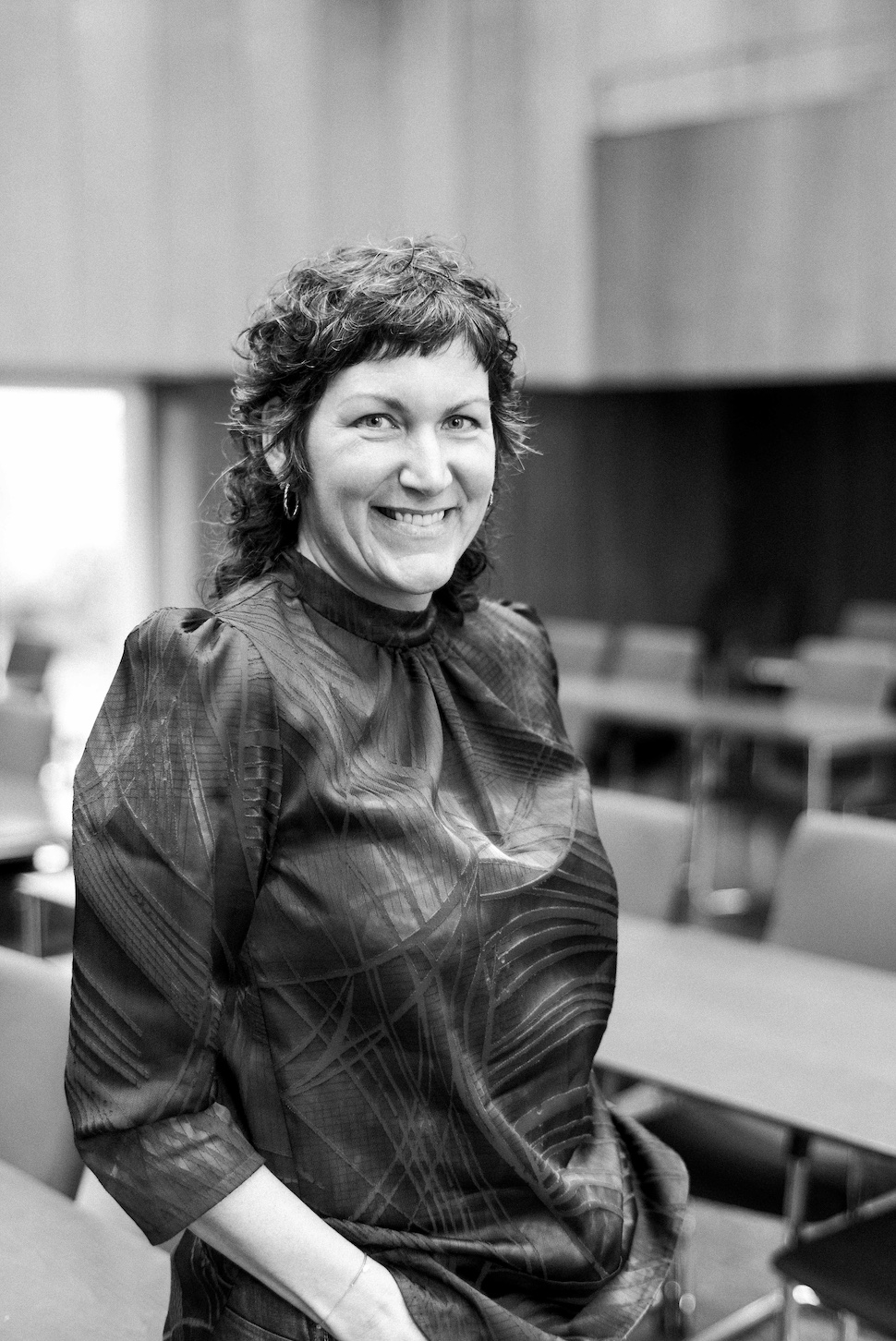
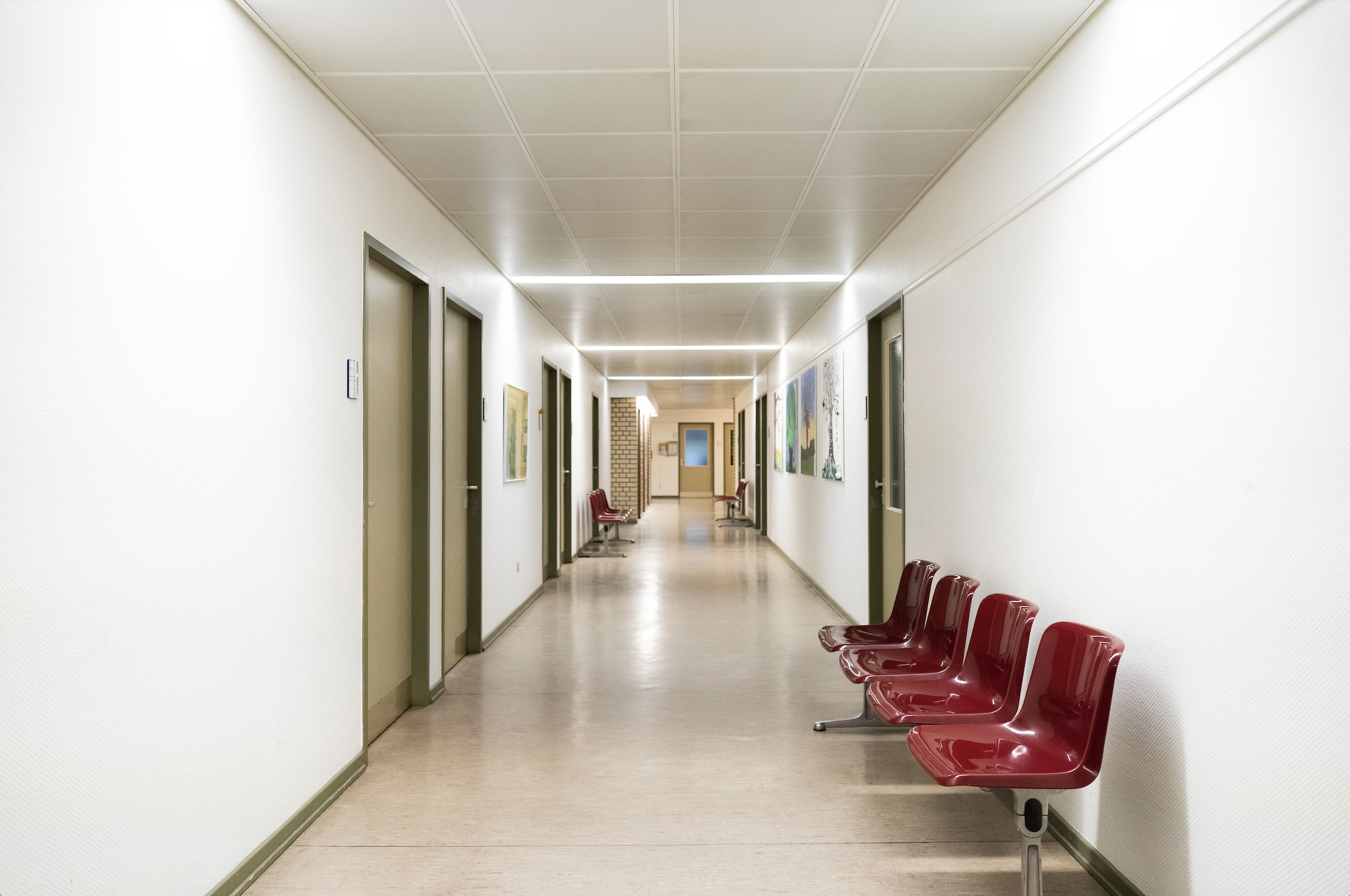
From the outside, it always looks very simple: Goodbye file folders and queues, in future citizens will be able to apply for a new passport from their living room and use hundreds of services online. The coronavirus has triggered an additional digitalisation push - virtual meetings and location-independent collaboration are now also part of everyday life in the administration. However, it is clear that certain mindsets and structures are not yet adapted to this changing world of work. A classic example is "knowledge silos" within and between individual departments: "Who actually does what in the organisation? It is important to maintain an overview - and to boost internal communication for this purpose, especially if not everyone is on site at all times," says Susanne Rengel.
"It's about gaining insights into what others are doing, networking better and making better use of the wide range of expertise in the company."
Employees and managers participated in the transformation process in several phases in the spirit of co-creation; at the same time, a cultural change working group consisting of the stakeholders involved has been established on a sustainable basis and is thus involving other employees in the implementation. The process began with an organisational analysis with expert support from the University of Potsdam, which led to the identification of key challenges. These were taken up by the Cross Innovation Hub and transformed into a vision for ideal collaboration and vision-led practical solutions in a multi-stage process developed specifically for the district office.
The term cross innovation refers to the idea of harnessing the innovation potential of the creative industries for other sectors - by bringing together players from both sides. As in this case with the "Pop-up Office" training format, which was an important part of the process. In this format, mixed teams of creative professionals and organisational representatives address the topic of innovation culture and new work. In May 2023, an unusual office community formed in a loft in HafenCity for three and a half days. Right in the middle of it: Employees of the district office.
With the pop-up office, the Cross Innovation Hub has an experimental further education format in its range of programmes that is dedicated to the topic of "innovation culture". For several days, the hub brings together various company representatives with selected creative minds. Inspired by new work experts and guided by facilitators, the mixed teams go through so-called "culture sprints" - from defining problems to developing solutions. The aim is to subsequently apply the new practices and impulses from the format in their own everyday work. Learn more
The approach: everyone thinks along, regardless of how and where they work - and thus learns from the experiences and perspectives of the other participants. After a keynote speech on topics relating to New Work, small interdisciplinary groups got to work. The challenges of the district office were discussed as well as those of creative freelancers. The ideas of an ideal work culture and collaboration were brought directly into a tangible form: different vision prototypes were created, which were finalised again specifically for the district office in the further process. For example, an employee of the district office labelled his prototype with eyes and hearts for wishes such as "try out more" or "make contacts". "An important takeaway from the pop-up office was: Anyone can be creative! Have the courage to put forward your ideas and stand up for them," summarises Susanne Rengel. Based on the visions, the next step was to develop concrete ideas and measures for future collaboration.
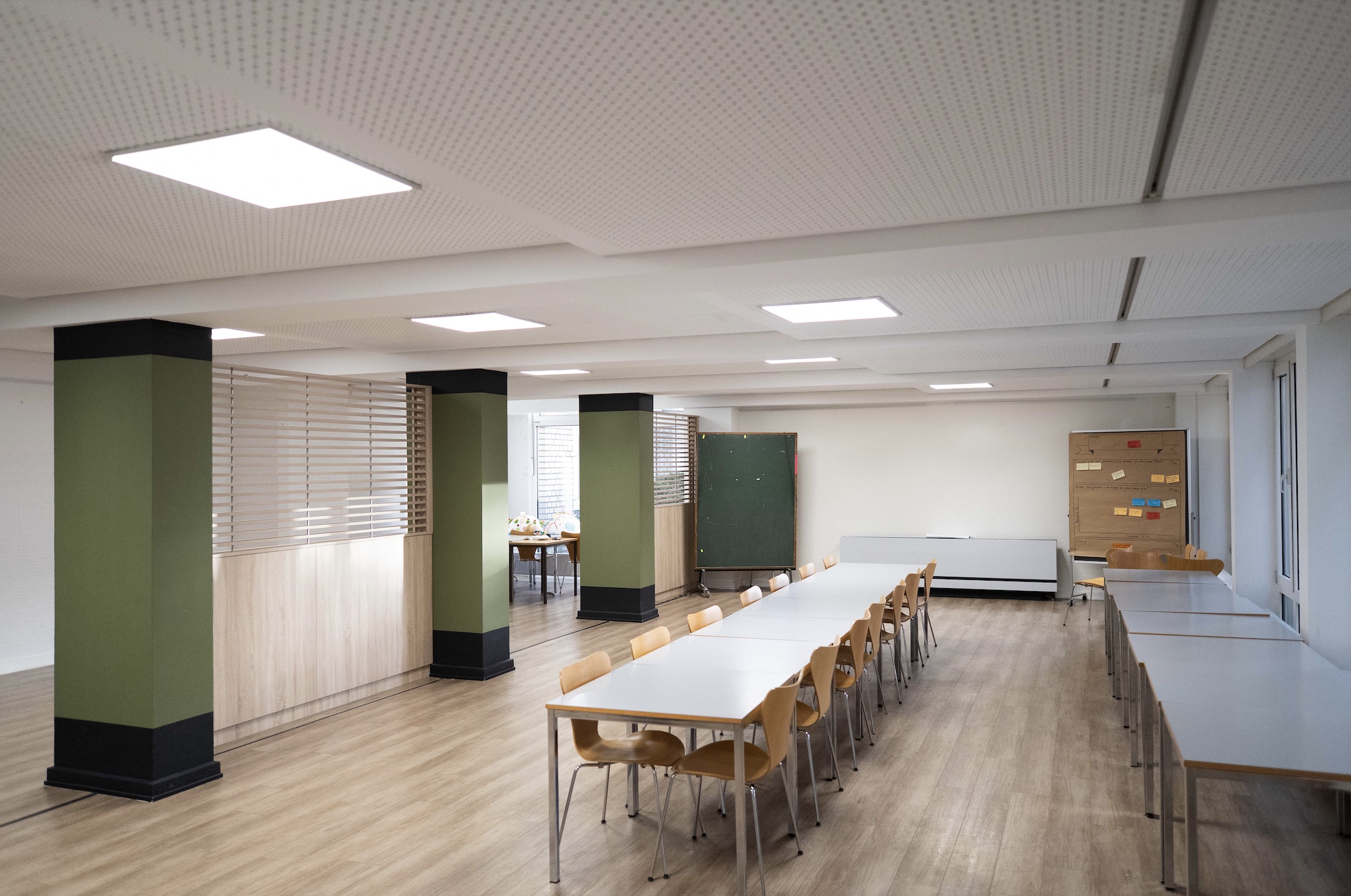
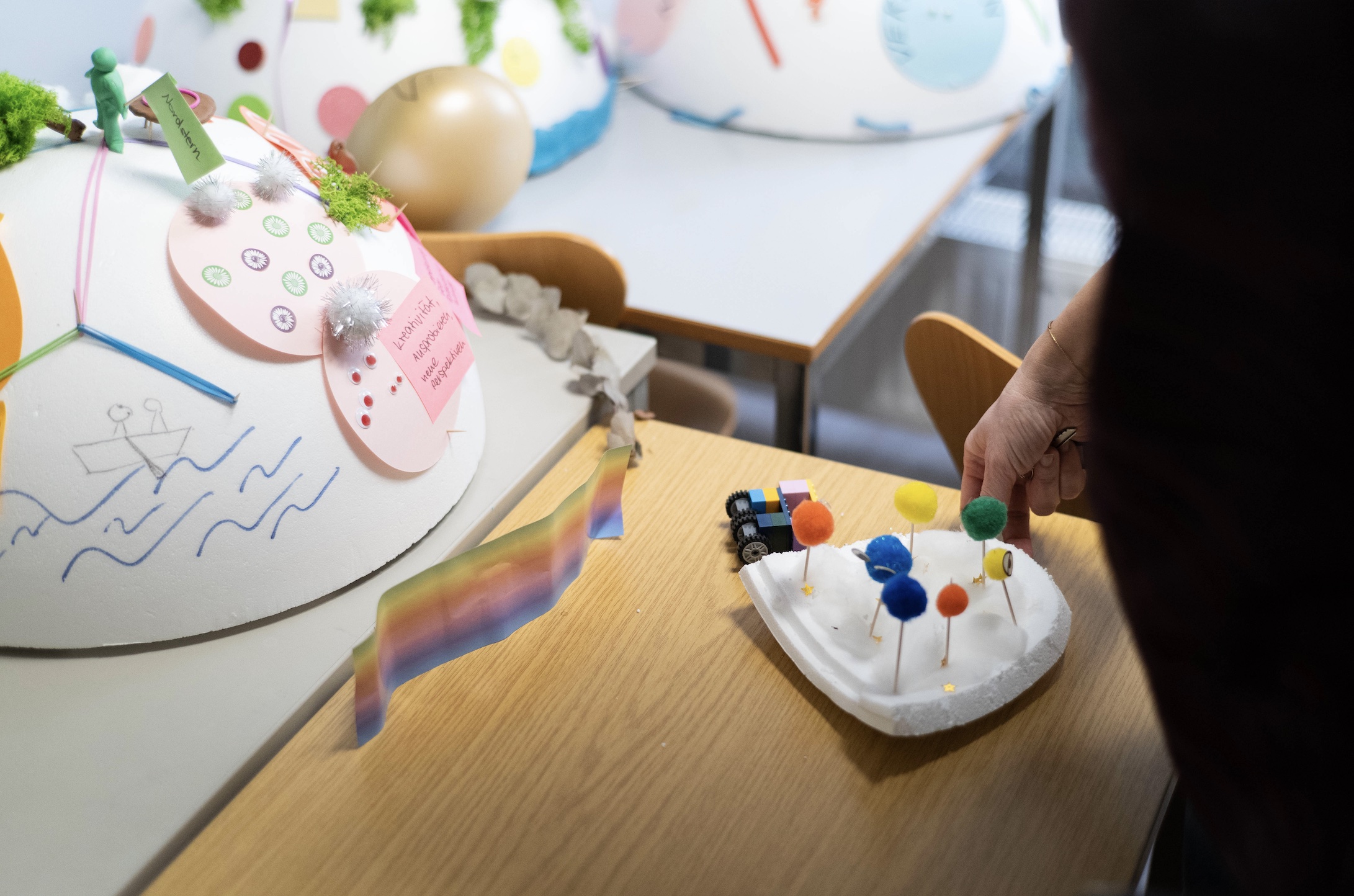
In the meantime, many of the measures have already been tested, are being iteratively developed further or discarded. For example, the Kulturwandel-AG is currently putting together "care packages" for good meetings: Tools such as motivational cards are intended to loosen up meetings and make them more constructive - as are efficient meeting modules such as "limit speaking times" or "change the moderator role". Another example is the "corridor café": over a coffee in the long corridors, employees get to know each other better across departments or get to know each other at all. Or you can meet online during the lunch break for the "brain food" format. The aim here is to learn from colleagues. "It's about gaining insights into what others are doing, networking better and making better use of the wide range of expertise within the company," says Susanne Rengel.
As a new meeting place, the dining room, which has been deserted since the coronavirus pandemic, has been revitalised as a "creative canteen": after the project results were exhibited here until recently, experiments are now being carried out with the prototype of an open lunch break: Everyone brings their own food and everyone comes together in a low-threshold setting. At least until the move to the new building. Then the team will have to say goodbye to the paternoster for good.